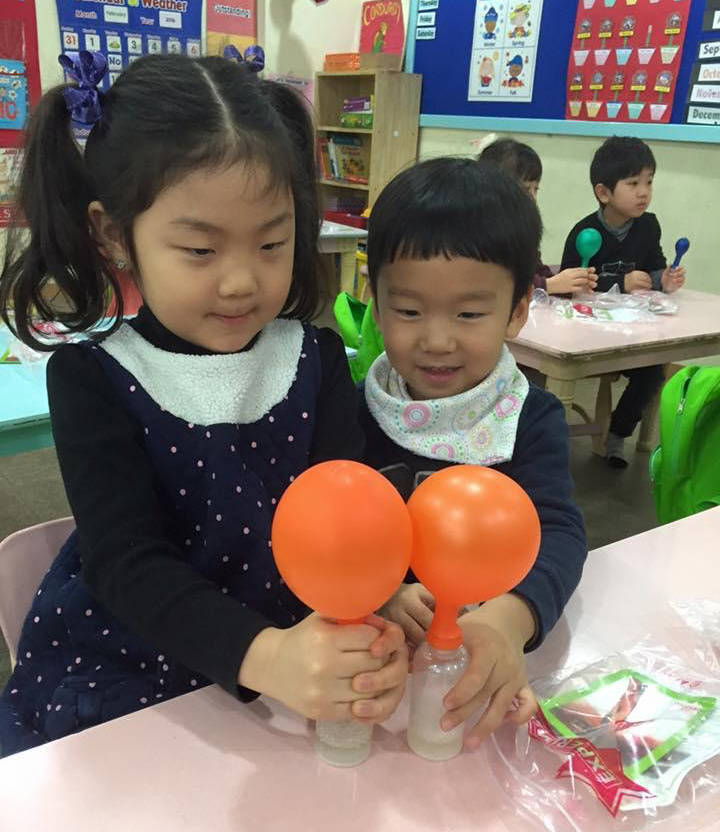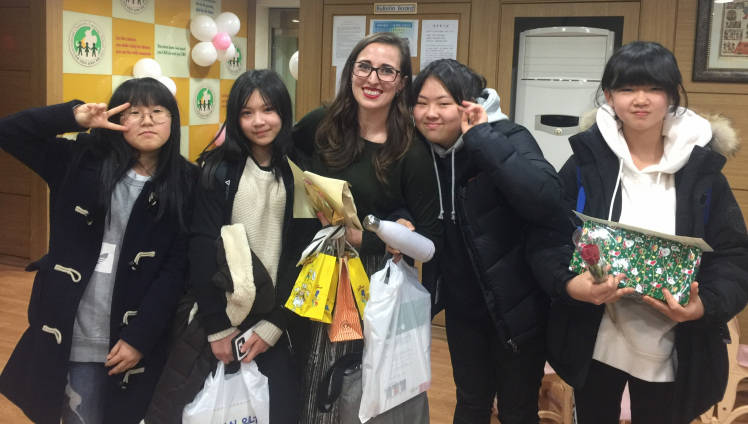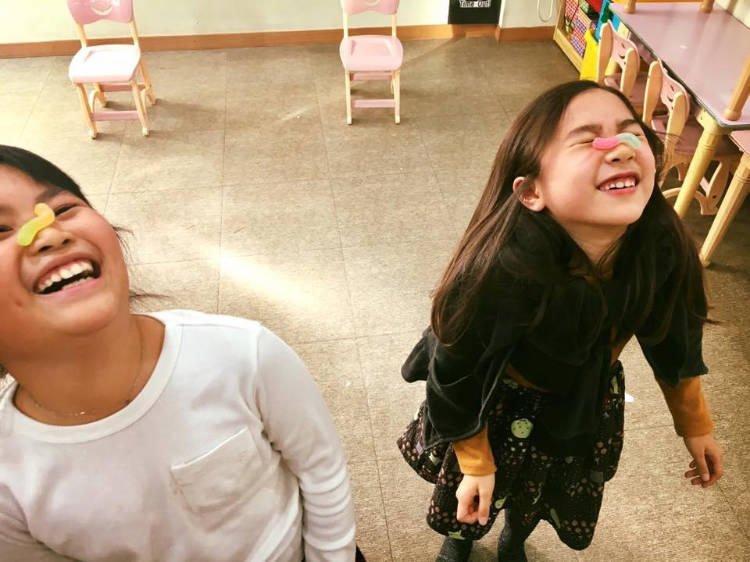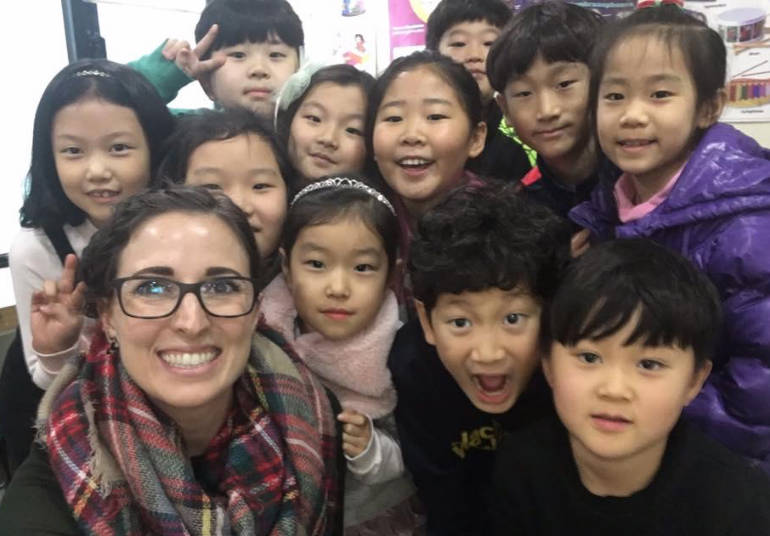Deciding to spend an entire year in a foreign country can be daunting. At 24, I can’t imagine a bigger life decision than to uproot your life and move across the world to teach English in South Korea. Reflecting on Korea now, and knowing all the stresses and challenges I would face, would I do it again?
The answer is yes, absolutely yes.
While the experience was life-changing, there are several things I wish I had known that could have made life abroad instantly easier. If you are considering teaching English in South Korea, here are a few insights to help you prepare for your travels and to better adjust to life abroad.
Before Applying, Understand the Difference Between a Hagwon and a Public School

When applying to teach in Korea, you will have to decide if a private school (Hagwon) or a public school is the choice for you. I did not fully understand the differences and took a job at a hagwon without much research. Here’s what I wish I had known:
- Working at a Hagwon, your hours will most likely be inconsistent and longer than a traditional American work day.
- Hagwons don’t offer as many holidays off
- Hagwons require more interaction with parents than public school position.
- Hagwons often pay a higher salary than public schools.
- Public school schedules are much more conventional to an American work day.
- Public schools tend to be substantially more reliable as far as planning, class sizes, and discipline.
- Public schools have less of a business setting and more a traditional school setting.
It is so important to weigh the pros and cons of both private and public Korean schools before making your decision. Looking back, I often wish I had known about public school opportunities as it would have been a better fit for me. But each person and school is different!
Seoul is Huge

When I accepted my Hagwon job in Dongducheon, Seoul, I was told I was an easy ride from city center. I wish I had known to fully research my locations to get a better understanding of location. To assist you with this task, check out Seoul Metro. It’s a great app to help you really visualize how close you will be to everything.
Decide what areas are important for you to be near, map everything out, and determine if that school’s location will work for you. Are you interested in nightlife? More worried about being near museums and cultural exhibits? Prefer the quiet country to the bustling city?
I found myself an hour and a half north of ‘downtown’, meaning I could only spend time with my friends on the weekend who all lived there. While I wish I had done more research on the topic, the good news is that transportation is cheap. Even if you are far, as long as you have access to the Metro, you are in great shape. Despite being far away from what I consider to be true Seoul, I was surrounded by excellent food, many unique boutiques, and coffee shops.
And being further from Seoul meant everything was significantly cheaper, so I was able to afford a really nice gym membership on top of everything else. Not being near the Metro will make it slightly more difficult and expensive, but with the availability of buses and taxis everywhere, no matter where you end up, you will be fine.
Prepare for Korea’s Stress Culture

The pressure on students in Korea is insurmountable. Starting at a very young age, Korean children are thrown in ESL Kindergartens and the pressure begins there. Many of my five year old students had tutors after class and on the weekends, Tae-Kwon-Do lessons, and music lessons all crammed into one day leaving little time for rest or play.
My middle schoolers said they averaged four hours of sleep a night due to their busy schedules, the pressure of test scores, and endless classes. In Korea, school never ends at the bell. After school, they all rush off to English school followed by music classes, sports practice, tutors and hours of homework. As a teacher and foreigner, this is very hard to witness.

The effects of these high standards will be evident day to day. I wish I had known to better prepare for my inability to change this. My Kindy kids would fall asleep mid-day from lack of sleep, suffer from headaches, get nosebleeds, and cry about having to visit tutors everyday. I had to slowly learn to accept that this is Korea’s way of life – despite my feelings about it – and do what I could to make my classes engaging and stress-free.

Living in Korea, you will face many challenges. Being prepared is a way to combat that and eliminate unnecessary stresses in your life. While I wish I had known these things before jet setting, I survived and thrived during my year in Korea and strongly advise you take this opportunity to go see what South Korea has to offer you!

I like your personal take on things.
I agree that you will stress yourself out by trying to change the educational system here.
It’s best just to work with each student to the best of your abilities.
The ESL academies are a hit and miss but there are tons in Seoul.
Public school /EPIC / GEPIK openings are normally further away from the center of Seoul but offer great structured teaching experience.
Great article
Honestly, this helped alot. I’ve wanted to move to South Korea since i started watching dramas and tv shows and somewhat learning the language in 3rd grade on my own. I’m now only a freshman in highschool but I love cooking but I can see that if I really wanted to live in South Korea I would just do a teaching job. English is also the subject I am advanced in so this career works right in. Some questions I have are;
– Are u allowed to only teach one year abroad or can you stay longer(a lot longer) or do they choose how long you have to stay
– Are we allowed to choose where we would like to teach, or does the program choose for us? For an example, I’d want to teach in Jeju City
– Should i get a teaching degree in the U.S. or in South Korea?
I’m glad this was helpful!
Contracts with the public school program are for one year, with the option to extend for additional years if you like. Teachers can express a preference for one location, but the program places all over the country so it’s important to be flexible. It’s a beautiful country with lots to offer, no matter where you’re placed!
Korean schools prefer that English teachers are educated in fully English-speaking environments, so it’s best to have a degree from the US. However, your bachelor’s degree can be in any subject – if it’s not in teaching, you’ll just have to get a TEFL certification, which you can generally do as an online course.
Feel free to email us me at smcdermott@greenheart.org with any questions!
Can I also apply for a english teaching job in South Korea as a german citizen?
How would you rate the chances of getting a 1 year contract (either in a public or private school) for people that are not native english speakers?
However, I will finish my university in the following months and get my bachelors degree in business and psychology in 2019 and I am obviously planing to either do my TEFL or TESOL before I take any further steps towards my dream of living and working abroad.
Kind regards,
Shweta Bajaj
So I’m a freshman in high school and I really want to take up this job even though my parents don’t really want me to. I wanted to ask though, how much exactly do you make a year? Let’s say you got your masters in education and now you are teaching English in Korea. Also, the one year program is mandatory before you get an actual job or do you ever really have an actual inset job where you see students grow up and you get more students as they get in higher grades or do you just keep requesting for another year where ever you are placed?
Hey Jess! A Bachelor’s (4 year college degree) is required to apply so you’ll need to wait until after college to apply! Salary is around $2,000 a month but this does goes up each year and with more qualifications (Like a master’s degree). The one year program is mandatory, yes.
Thank you so much for this “real” advice. Your blog is so helpful to those of us considering this big step. I have an adopted daughter from South Korea so I would be bringing her with me. She will be in her Senior year in HS. How likely would it be that she could be enrolled near where I would be teaching? Any advice would be so appreciated.
Hey, I’m wondering how you found a reputable website to find a job online? I see so many different sites and programs but am never sure which ones are actually worth while.
Most articles here in Go Overseas will tackle the differences between public and private institutions and all that you need to know to find yourself a job. Below is a list of things for those preparing to teach in South Korea. This is not a comprehensive list of what to know before teaching in South Korea, but rather a few tips and advice on things you will probably wish you knew once you arrive.
Hi I’m about to be a sophomore in high school and I’ve always had a live for teaching and Korea so I thought it’ll be best to teach in Korea but while doing my research it’s a requirement to have a bachelors but my question is do I have to get that degree in the U.S or can I get in Korea
You can get that in Korea also!
Hi
I am a South African based citizen and would like to teach english in South korea. Please kindly advise on the procedure to follow.
Regards,
Bongeka Mlambo
Hello! Sorry for the delay. For more information on our programs, please reach out to our email travelabroad@greenheart.org. Cheers, Greenheart Travel
Hi, I’m from Kenya with a B.Ed. arts(English and literature). Do I qualify to teach English in Korea?
Hello! Sorry for the delay. For more information on our programs, please reach out to our email travelabroad@greenheart.org. Cheers, Greenheart Travel
Ok so I’m in high school and I want to be an English teacher in South korea. I’ve been doing some research and most people say that you can only work there for one year. Is it possible to work there as a permanent job?
Hello! Sorry for the delay. For more information on our programs, please reach out to our email travelabroad@greenheart.org. Cheers, Greenheart Travel
I’m a senior in Highschool, and I have been trying to find out what would be good to major in, so I can go overseas to teach English. I’m not finding anything online about what major would be best, Do you know what major would be most helpful?
As long as you have at least a Bachelor’s degree (4 year degree in America), your major doesn’t matter as much as having TEFL or TESOL training/certification. The degree is mostly required for visas, whereas the certification is usually the requirement for the actual teaching job. I’m majoring in Healthcare Administration, two friends of mine are business majors. We’re all doing our TEFL certification as well.
Hi I have a year left of my degree and want to apply to teach abroad in south korea after I graduate. I have met all of the requirements but do not have my gcse maths I have a level 1 and 3 in function skill maths . I also have years experience of working in educational settings. I wanted to know if it will make a difference and any advice you can offer me .
Thankyou
Hello and thank you for your inquiry. Please connect with us via email at travelabroad@greenheart.org and we can answer specific questions about your interest! Cheers, Greenheart Travel
hi, i want to teach abroad as well after I’m out of high school and this article really helped, if you don’t mind me asking, what are you majoring in?
Hi, I’m currently pursuing a master’s in architecture in my home country in Africa. English is my first language and I’m currently learning Korean. I would like to know if I am eligible for a teaching position in South Korea.
Hi Stacie,
You can read more about eligibility requirements on our website by navigating to the eligibility tab on this webpage: https://greenhearttravel.org/program/adult/teach/tesol-south-korea
Hello, I am interested in teaching English in South Korea in the future. I have been doing my research and I have discovered that most jobs are for a 1 year contract. Is there any way that you can work there full time as a permanent job?
Hi Elisa,
Once you are on program, if you develop a good relationship with the school you are teaching at, they may offer to extend your contract. However, we cannot guarantee a permanent job.
Hi,
I have just finished my High School and am applying for my College. Can I apply for a TEFL Degree right now to teach English in Korea or do I have to complete my college?
I so badly want this job.
Hi Batika,
You can learn more about the program’s eligibility requirements here: https://greenhearttravel.org/program/adult/teach/tesol-south-korea#/tab/eligibility
Hi.
I’m a South African based citizen and I’m only left with two years to finish my bachelor’s degree in Social Sciences. I would really love to teach English in South Korea and also learn new things, when should I start applying for the job and what procedure can I follow ?
Kind regards.
Mbali Dubazana
Hi Mbali,
You can check out our website for this program here: https://greenhearttravel.org/program/adult/teach/tesol-south-korea#/tab/overview
You can navigate to the different tabs on the left hand side to learn about eligibility requirements, the application process, and expectations.
If you want to teach English In Korea do you have to have a degree in another field like in the United States?
Hi Ariana!
You can read more about the program eligibility requirements here: https://greenhearttravel.org/program/adult/teach/tesol-south-korea#/tab/eligibility